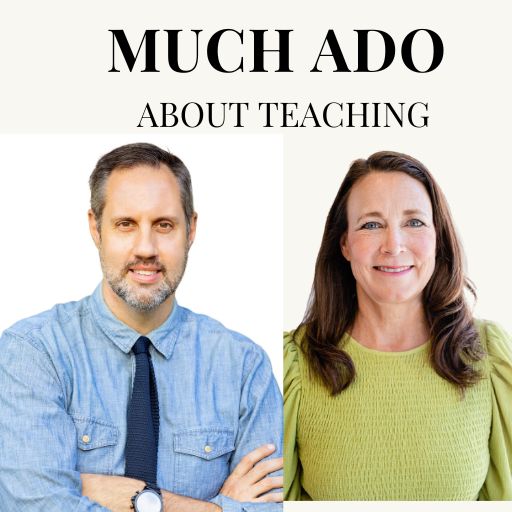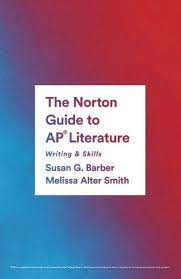Eric Rovie teaches AP Literature, AP Language, and 10th Grade Gifted Language Arts at Brookwood High School in Snellville, GA. He also works for GwinnettCounty Public Schools as a Gifted Endorsement instructor, training GCPS teachers to teach gifted students. He is also a veteran AP Literature Reader, a participant in 2020’s AP Literature Pilot Reading, an AP Literature Consultant for the College Board, and an AP English consultant for the Georgia Department of Education. He coaches both varsity swim and varsity track and field for Brookwood. Previously, he was a professor of philosophy and religious studies at Webster University, Georgia State University, Agnes Scott College, Georgia Perimeter College, and Saint Leo University, and has published book chapters and articles on topics in ethics, the history of philosophy, and political theory. Eric has also worked as a staff writer for The Onion, The AV Club, PopMatters, and Chunklet.
Walk us through a great lesson from last week.
We were discussing structure in literature, using Atwood’s “Happy Endings” and Kutagawa’s “In A Grove” as exemplars. I asked students to come up with examples from any media of unusual structure that impacts meaning. Students offered examples from film, music, literature, television, and video games. After these examples, we dove into the two stories with unusual structures to analyze the importance of non-chronological narration.
What’s the last great poem or short story that you read?
Poem: “Storage” by Mary Oliver
Short story: “In The Horsecart” by Chekhov

How does a teacher know if they are succeeding?
If students are excited about class, that’s generally a sign of success. I’m happier with a student who isn’t doing as well on assessments but gets engaged than the student who aces everything but doesn’t seem invested in the class.
What’s one thing that we, as teachers, could be doing better?
As an AP teacher, I feel like my kids are learning how to prepare for a test but not as much about why literature matters, in the grander scheme of things. I want to help kids love and respect literature while still getting college credit on the AP test.
What makes your classroom culture unique?
I try to connect my class, as much as possible, to the things students care about, without forcing it. I also try to bring philosophical analysis and discussion into my class as often as possible. Students aren’t always directly exposed to philosophy in high school, but when they are, they love it, so I use my background as a philosopher in class quite often.
What is the one novel you can’t imagine removing from your curriculum? Why?
The Road by Cormac McCarthy. It’s a bleak, dark book but I find it incredibly hopeful as well. Students generally find it compelling and connect to it, so I use it every year. I have a unit called “Philosophers on the road” that gives students a chance to connect the themes of the road with the writings of folks like Hobbes, Nietzsche, Rousseau, and Plato.
Describe your work/life balance.
I try not to bring work home with me. I use my planning period to grade and prep, and I try to give at least one “work day” a week for my students, which gives me time to grade papers as well. Grading in Google Classroom, using a rubric, saves me a lot of time. Because I coach both of my kids (my older daughter is a junior and runs track and XC, my younger is a swimmer), I don’t have a lot of time in the afternoons or evenings to work.
Tell us about a change – practical or philosophical, big or small – that you’ve made since you’ve started teaching.
I began as a college professor, so I was always the “sage on stage.” I would lecture for 1-2 days each class, every day. When I shifted to high school, I learned to cut back on the lectures and allow student activity to be a much larger part of the classroom dynamic.













